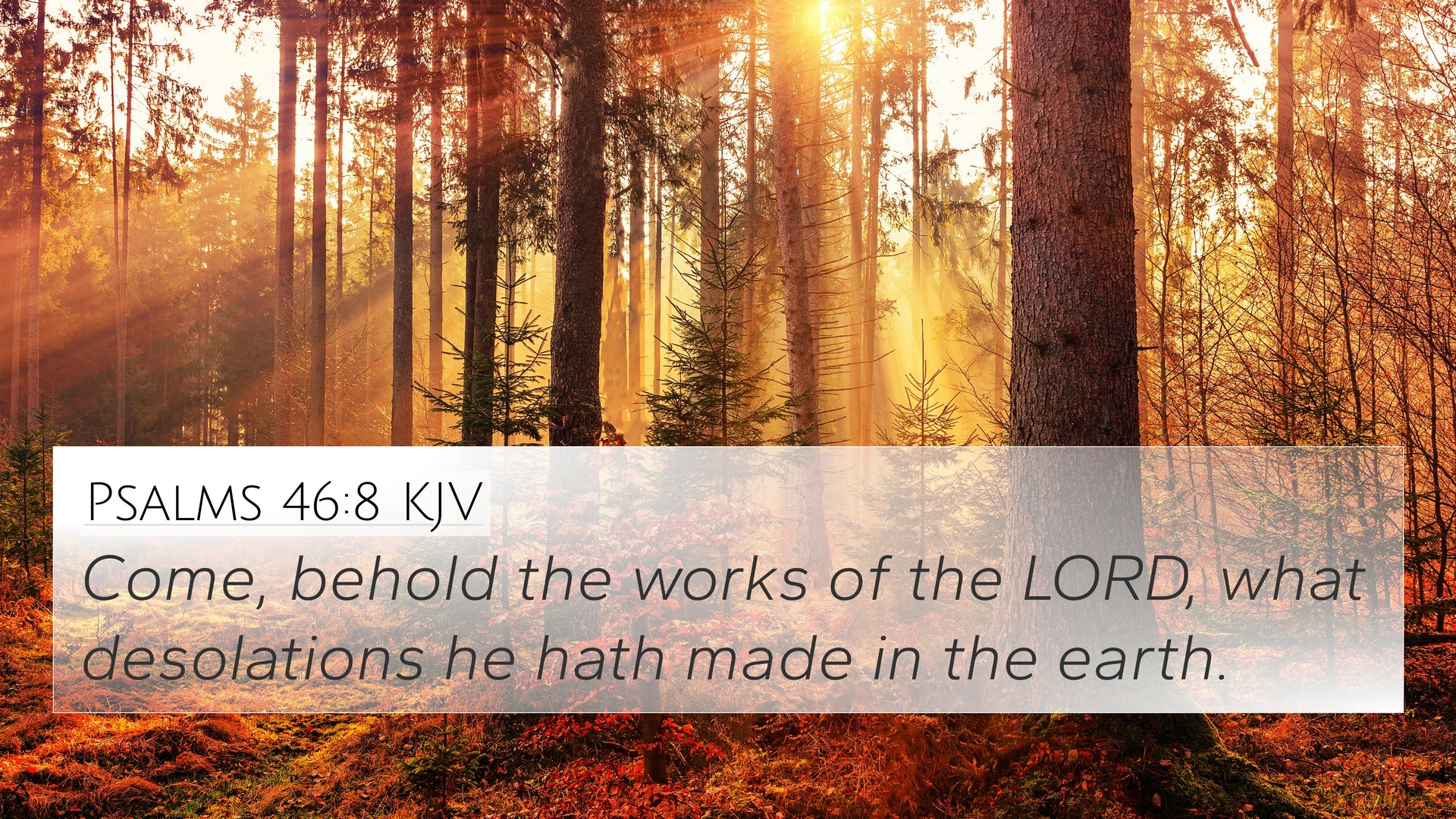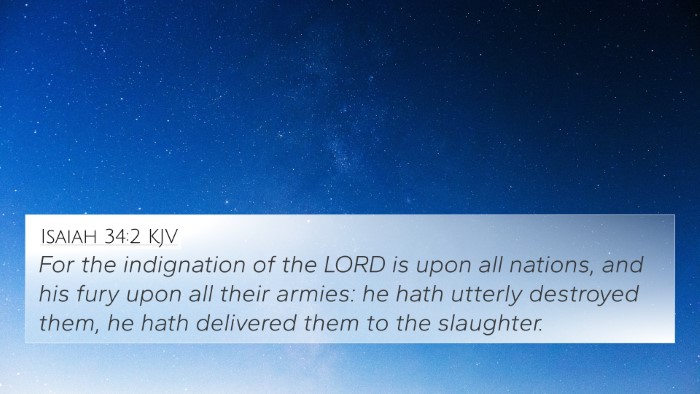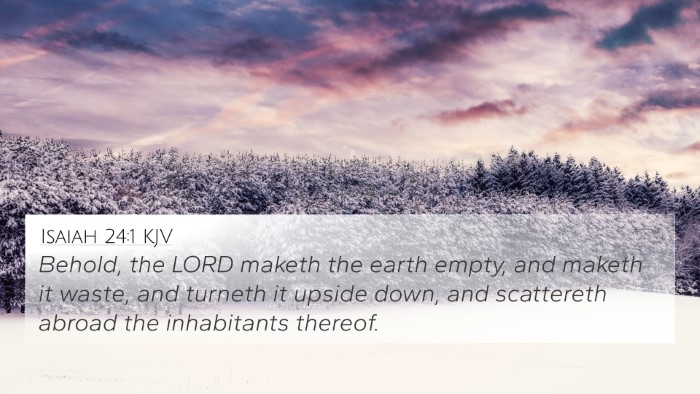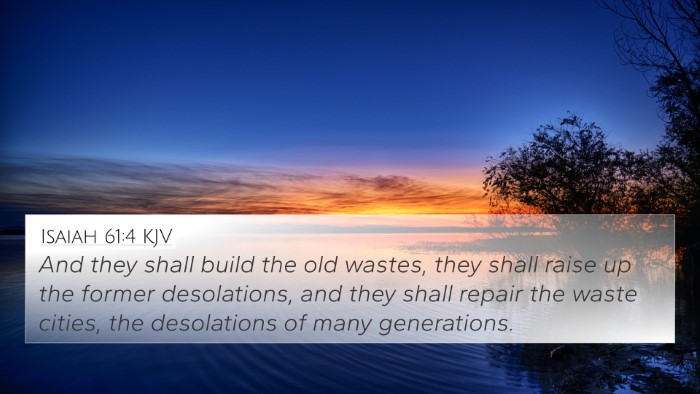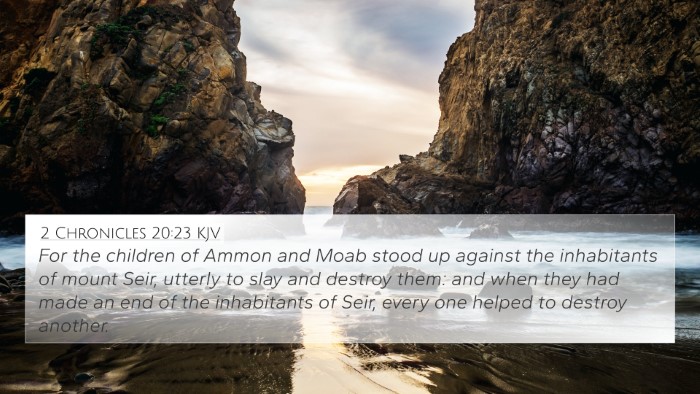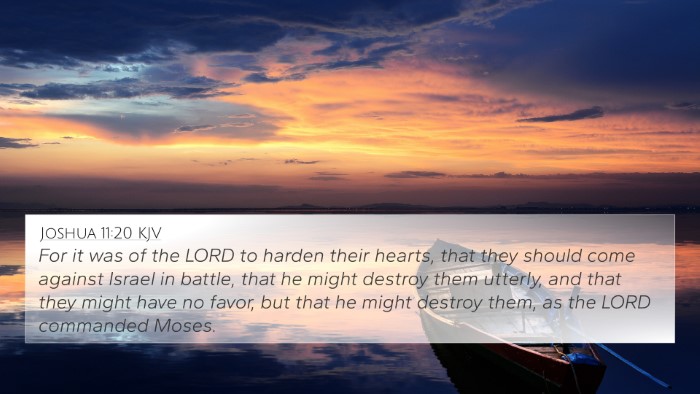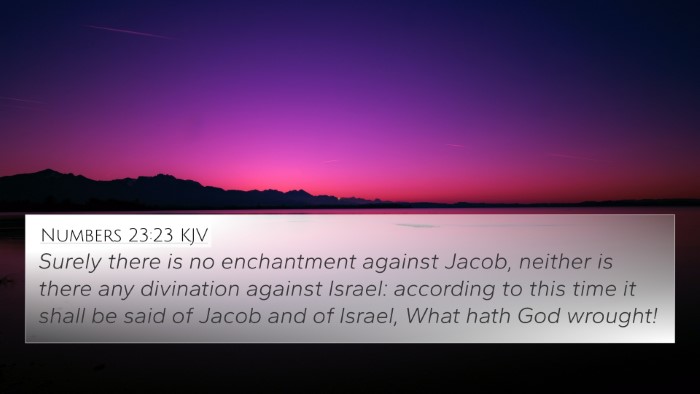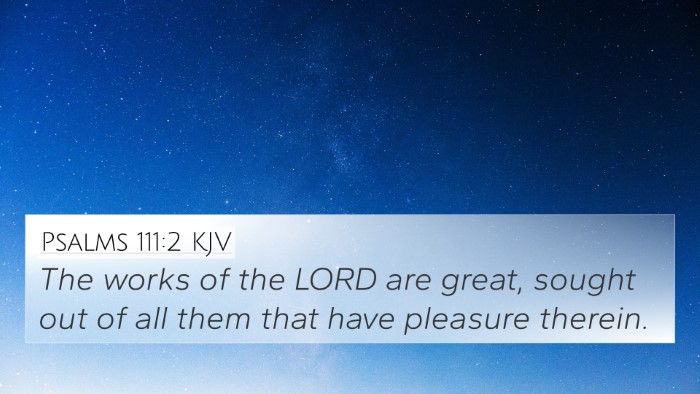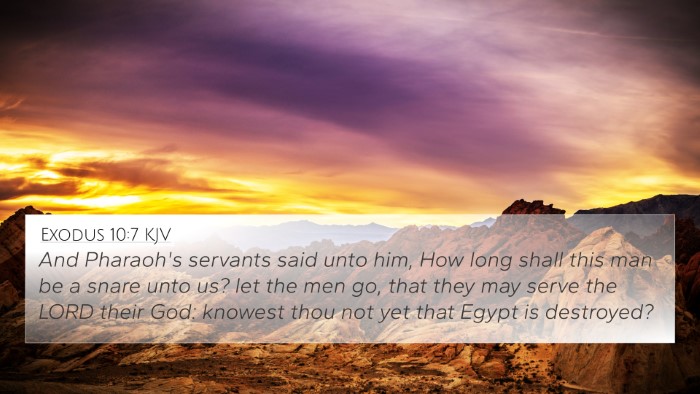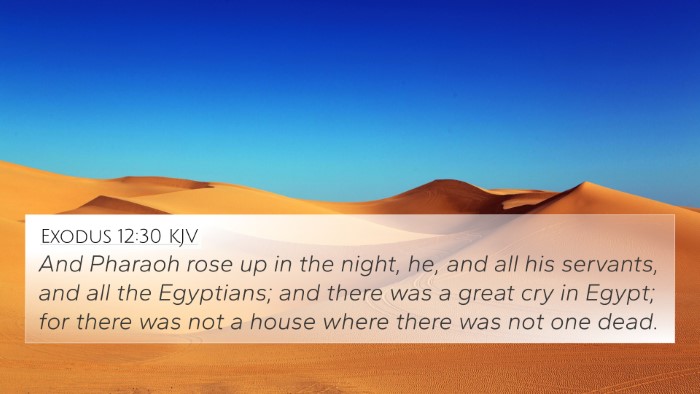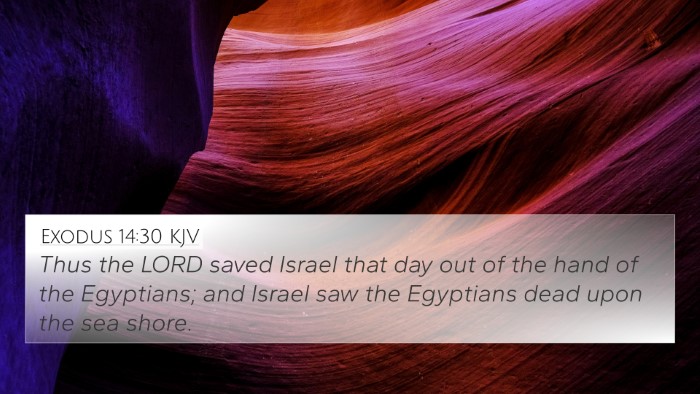Psalms 46:8 - Understanding the Verse
Verse: "Come, behold the works of the Lord, what desolations he hath made in the earth." - Psalms 46:8
This verse invites the reader to witness the significant acts of God in the world, particularly His power and sovereignty over both creation and destruction.
Summary of Insights from Public Domain Commentaries
This section synthesizes interpretations from various revered commentaries, providing a comprehensive understanding of Psalms 46:8.
Matthew Henry's Commentary
Matthew Henry emphasizes the dual nature of God's works—both in creating and in obliteration. He notes that God's desolations symbolize His judgment upon nations and individuals when they turn away from Him. This reflection encourages believers to recognize the might of God’s actions and His ultimate control over history and human affairs.
Albert Barnes' Commentary
Albert Barnes focuses on the call to "behold" as an imperative for the faithful to observe both the grandeur of God’s creations and the severity of His judgments. He argues that understanding these divine acts strengthens faith and cultivates a sincere reverence for the Lord. It presents an opportunity for introspection on how God's actions reflect His character.
Adam Clarke's Commentary
Adam Clarke reflects on the historical context, linking the desolations mentioned to specific events in Israel and the surrounding nations that demonstrated God’s power. He highlights that the act of beholding is not passive but involves a deep, active engagement with God's revelation of Himself through history.
Bible Cross-References
Understanding Psalms 46:8 can be enhanced by examining cross-references that relate to its themes of God's power, judgment, and the call to witness His works. Here are some pertinent verses:
- Isaiah 40:26: "Lift up your eyes on high, and behold who hath created these things..."
- Habakkuk 1:5: "Behold ye among the nations, and regard, and wonder marvelously..."
- Psalm 66:5: "Come and see the works of God: He is terrible in his doing toward the children of men."
- Matthew 24:29-30: "Immediately after the tribulation of those days... then shall appear the sign of the Son of man in heaven..."
- Romans 1:20: "For the invisible things of him from the creation of the world are clearly seen..."
- Revelation 15:3: "Great and marvelous are thy works, Lord God Almighty; just and true are thy ways..."
- Jeremiah 10:15: "They are vanity, and the work of errors: in the time of their visitation they shall perish."
- Micah 1:3: "For behold, the Lord cometh forth out of his place..."
- Psalm 90:16: "Let thy work appear unto thy servants..."
- Hebrews 12:26: "Whose voice then shook the earth: but now he hath promised, saying..."
Thematic Connections in Scripture
The call to observe God's works in Psalms 46:8 resonates with themes throughout the Bible that emphasize God's sovereignty and the importance of recognizing His power.
1. God’s Sovereignty: Many scriptures speak to God's ultimate authority over creation and history. The linkage between these verses reveals a consistent message about God's control over all that happens on earth.
2. Divine Judgments: The theme of God's desolation reoccurs in various narratives where human sin leads to divine retribution, accentuating the importance of turning back to God.
3. Witnessing God’s Works: Both the Old and New Testaments invite believers to witness and reflect upon God's actions, thereby deepening their relationship with Him.
Conclusion
In summary, Psalms 46:8 serves as a profound reminder of God’s majestic works and a call to reflect on His sovereign actions in the world. By exploring associated Bible verses and engaging in thematic analysis, readers can deepen their understanding of God's nature and His relationship with humanity.
This exploration not only enriches the spiritual journey but also offers tools for effective Bible study, encouraging believers to utilize cross-referencing techniques that unveil the rich interconnectivity of scripture, leading to deeper insights and enhanced faith.
